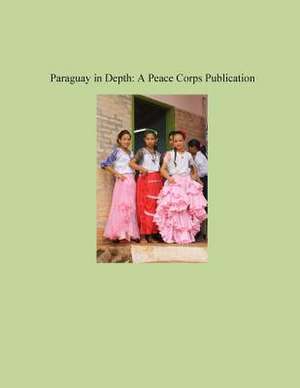Paraguay in Depth
Autor Peace Corpsen Limba Engleză Paperback
Preț: 87.51 lei
Nou
Puncte Express: 131
Preț estimativ în valută:
16.75€ • 17.28$ • 13.97£
16.75€ • 17.28$ • 13.97£
Carte disponibilă
Livrare economică 06-20 martie
Preluare comenzi: 021 569.72.76
Specificații
ISBN-13: 9781502358974
ISBN-10: 1502358972
Pagini: 92
Dimensiuni: 216 x 279 x 5 mm
Greutate: 0.24 kg
Editura: CREATESPACE
ISBN-10: 1502358972
Pagini: 92
Dimensiuni: 216 x 279 x 5 mm
Greutate: 0.24 kg
Editura: CREATESPACE
